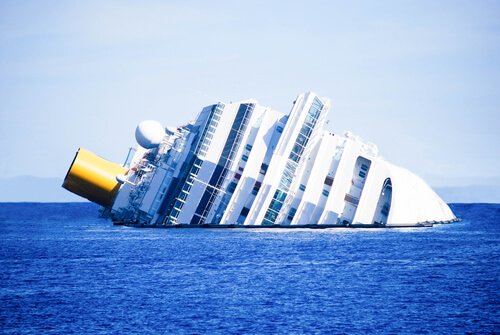
Long Island Cruise Line Negligence Lawyer
Cruise ships carry thousands of passengers from ship terminals through U.S. waters and international waters, and into foreign waters and ports. Various domestic, foreign and international laws apply to what happens during a cruise. In many instances, a person injured on a cruise ship cannot rely on familiar U.S. laws if someone else is at fault.
Maritime law applies to the world’s international waters” or “high seas,” which begin 24 miles from land. Maritime law is complex and not well defined when it comes to some topics or applications of the law. But in many cases, an accident, assault or other incident that results in a cruise ship passenger being injured is governed by maritime law or even a foreign country’s laws.
This makes it important to turn to an attorney who understands cruise ship accidents, cruise lines and complex maritime and international law if you’ve suffered any kind of injury on a cruise.
The Long Island accident lawyers of the Law Office of Cohen & Jaffe, LLP have extensive experience handling all types of injury claims. Our lawyers invest the time and resources to get full value for our clients’ cruise ship injury claims. We know how to calculate damages and justify it to an insurance adjuster or a jury.
Don’t settle for less. Contact us now to find out how we can help you.

Cruise Ship Accident FAQS
Accidents, Injuries Common Aboard ‘Floating City’ Cruise Ships
Cruise ships that carry thousands of passengers are essentially small floating cities. And though everyone is on board for a vacation and a good time, whenever you have that many people together things can go wrong.
Some cruise ship accidents get widespread publicity. You may recall the Carnival cruise ship that was adrift 150 miles off the coast of Mexico after an engine room fire in February 2013. Passengers complained about the lack of air conditioning, cold food and toilets that wouldn’t flush.
But many accidents and injuries occur on cruise ships without ever being reported in the press. The cruise ship industry generally does not release injury statistics. A 2010 law requiring cruise lines to report certain serious crimes aboard their ships has proven to be of little use because of the reports’ lack of timeliness.
Among the types of incidents aboard a cruise ship that may result in serious injuries or other losses to passengers are:
- Collisions, groundings and sinkings, which may cause a variety of impact injuries, as well as drownings, near-drownings from falling overboard or ship flooding, and hypothermia from extended time in the water.
- Fires, leading to burn and smoke-inhalation injuries and deaths.
- Criminal assault, including rape and other sexual assaults, in passenger-on-passenger attacks and attacks by cruise ship crew or staff. Cruise ships in certain waters also face the possibility of being attacked by pirates.
- Slip-and-fall accidents and injuries on wet, unlevel and shifting surfaces aboard a ship, or because of debris or equipment left in walkways.
- Foodborne illness, such as gastrointestinal illnesses (norovirus), E. coli, salmonella, etc.
- Communicable disease outbreaks. These may occur if the cruise line fails to properly screen passengers for illnesses.
Any kind of accident or illness can strike during a cruise and, to complicate matters, the ship may not be staffed with personnel who can provide appropriate medical aid. People may be hurt in swimming pool, wave pool, waterslide or climbing wall accidents aboard, for instance. Onboard parties may get out of hand and cause injuries. Accidents such as motor vehicle or slip-and-fall accidents, or assaults, can happen while onshore at a cruise’s port-of-call or even in the cruise ship terminal.
The ship’s crew, staff and other employees of a cruise line have a responsibility to take every reasonable precaution to ensure the safety of every passenger. When they do not meet this responsibility and passengers are injured or become seriously ill, the injured parties have the right to seek fair compensation for the harm they have suffered.
Cruise Ship Claims Require Special Knowledge, Quick Action
Passengers injured because of negligence aboard a cruise ship may seek compensation from the owner of the cruise ship, the company that chartered the cruise ship, the company that operated the cruise ship, and/or the company that sold the ticket as an agent of the cruise ship owner, charterer or operator.
One of the complications in determining negligence and accountability aboard a cruise ship is that each ship flies the flag of the country where it’s registered, and, in general, that nation’s laws apply on board. This is sometimes known as a “flag of convenience.”
But under maritime law, a cruise line has a general responsibility for its passengers’ safety. The Athens Convention of 1974 establishes a regime of liability for damages suffered by passengers on a seagoing vessel. It declares that a carrier may be held liable for damages or losses suffered by a passenger if the incident causing the harm occurred in the course of the carriage and was due to the fault or negligence of the carrier.
Passengers who embark from U.S. ports are also protected by the International Convention for the Safety of Life at Sea (SOLAS). SOLAS applies U.S. Coast Guard standards to crewing and crew competency, fire protection, firefighting and lifesaving equipment, navigation safety, watercraft integrity and stability, vessel control, safety management and environmental protection.
The fine print on a passenger’s ticket stipulates which jurisdiction’s laws apply to a legal claim, and even in which U.S. state a lawsuit would have to be filed. The ticket may also require an injured passenger to notify the cruise line about the injury within a certain amount of time. This is usually within six months of the accident, which is much shorter than the normal three-year statute of limitations (or time to bring a lawsuit) for admiralty and maritime matters.
The details on cruise tickets serve as a binding contract between the cruise line and passenger, and courts will generally enforce their provisions.
A personal injury claim based on cruise ship negligence must take into account the accident or incident that caused the injury, whether negligence was involved and can be demonstrated, and what laws apply to the incident. The investigation into these matters must be thorough, yet concise enough to meet time restrictions. Attorneys handling such claims must have the resources necessary to pursue lawsuits in New York, Seattle, Miami, Los Angeles or wherever the cruise line is based.
Contact our Long Island Cruise Ship Accident Attorneys
At the Law Office of Cohen & Jaffe, LLP our Long Island cruise line negligence lawyers have the knowledge and resources necessary to investigate and pursue cruise line passenger injury claims. Our comprehensive understanding of state and federal laws and international treaties puts us in a uniquely strong position to provide the results-oriented representation you need to reach a positive outcome in your case.
Our attorneys work with investigators, medical professionals and financial specialists to ensure we fully document your case before we present compensation demands to insurers or jurors. When we go to court for you, we go prepared to win.
Call Law Office of Cohen & Jaffe, LLP or e-mail us today for a free, no obligation review of your case and your legal options.
Sources:
- CNN – What cruise lines don’t want you to know
- The New York Times– How normal are cruise ship mishaps?
- NBC News– Data on cruise ship crime still falls short, GAO says














